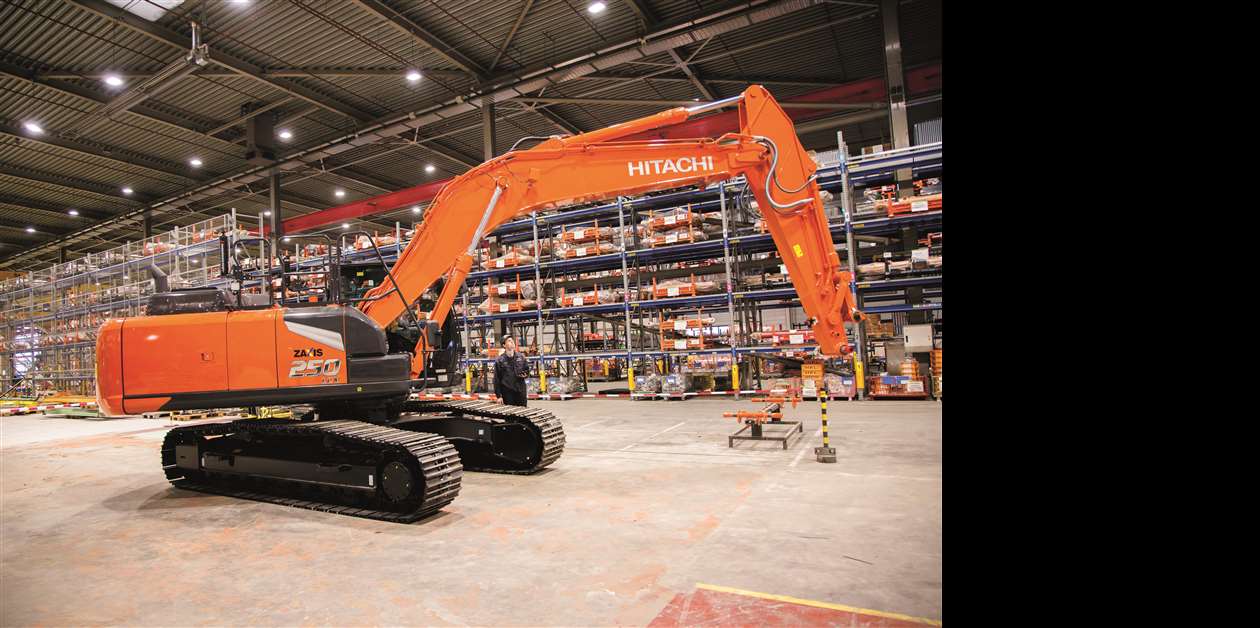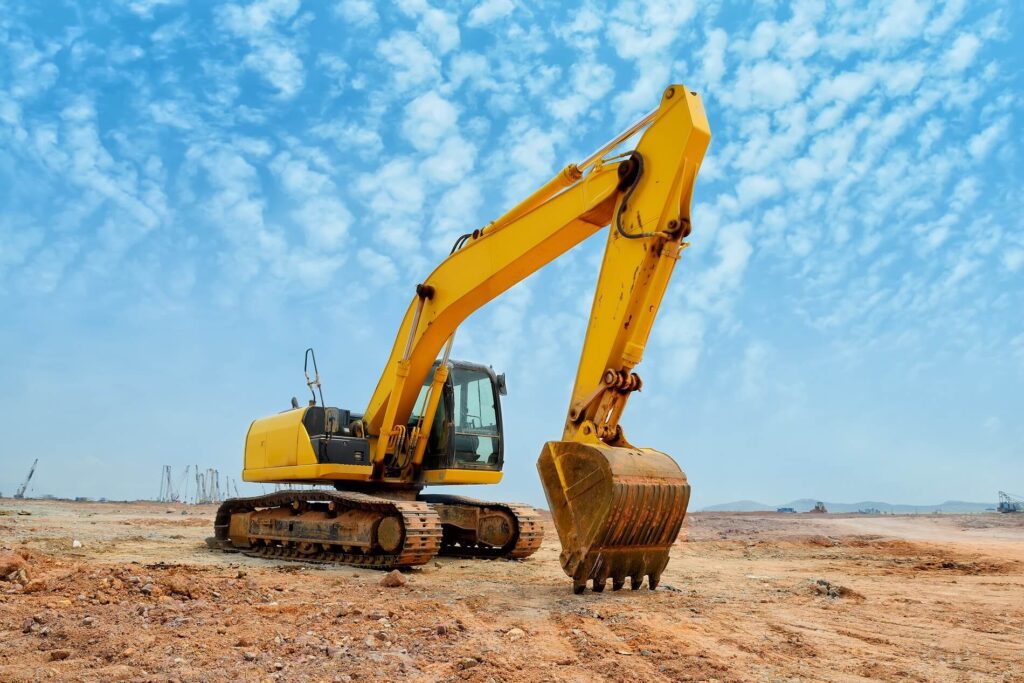Construction Equipment Rentals in Tuscaloosa AL: Everything You Need for Your Job Website
Construction Equipment Rentals in Tuscaloosa AL: Everything You Need for Your Job Website
Blog Article
Discovering the Financial Advantages of Leasing Building Devices Compared to Having It Long-Term
The decision between leasing and possessing building and construction equipment is pivotal for monetary administration in the market. Renting deals instant cost savings and operational versatility, permitting companies to allocate sources extra successfully. In contrast, ownership includes considerable long-lasting monetary dedications, including maintenance and depreciation. As contractors evaluate these alternatives, the effect on cash circulation, task timelines, and technology accessibility becomes significantly considerable. Understanding these nuances is vital, particularly when considering exactly how they align with certain project demands and monetary approaches. What variables should be prioritized to guarantee optimal decision-making in this complex landscape?

Price Comparison: Renting Out Vs. Having
When reviewing the financial ramifications of possessing versus renting building equipment, a comprehensive cost comparison is necessary for making educated choices. The choice in between renting and possessing can dramatically impact a business's profits, and recognizing the associated costs is critical.
Renting out building and construction tools commonly includes reduced ahead of time expenses, allowing organizations to allocate capital to various other functional demands. Rental prices can gather over time, possibly surpassing the expense of ownership if tools is needed for an extended duration.
Alternatively, owning building devices needs a significant preliminary financial investment, together with recurring prices such as devaluation, insurance, and financing. While ownership can lead to lasting cost savings, it likewise links up funding and might not supply the very same level of adaptability as leasing. In addition, having equipment necessitates a commitment to its usage, which might not always straighten with job needs.
Inevitably, the choice to rent out or have needs to be based upon a detailed analysis of certain job requirements, economic capacity, and long-term tactical goals.

Maintenance Costs and Duties
The choice in between renting out and possessing construction tools not just entails monetary factors to consider but also incorporates ongoing upkeep costs and responsibilities. Owning tools requires a considerable dedication to its maintenance, which includes regular evaluations, fixings, and possible upgrades. These obligations can swiftly accumulate, resulting in unexpected costs that can strain a budget.
On the other hand, when renting tools, maintenance is commonly the responsibility of the rental company. This arrangement enables specialists to avoid the financial worry related to damage, along with the logistical challenges of organizing repair work. Rental contracts usually consist of provisions for maintenance, implying that service providers can concentrate on finishing jobs rather than bothering with devices condition.
In addition, the diverse series of equipment readily available for rent allows firms to choose the most up to date versions with sophisticated modern technology, which can improve efficiency and productivity - scissor lift rental in Tuscaloosa Al. By deciding for services, organizations can avoid the lasting responsibility of equipment depreciation and the associated upkeep migraines. Ultimately, evaluating maintenance expenses and obligations is important for making an informed choice regarding whether to rent or possess building and construction tools, significantly affecting total project expenses and operational efficiency

Depreciation Effect On Ownership

A significant factor to consider in the choice to possess construction tools is the influence of devaluation on overall ownership expenses. Depreciation represents the decrease in worth of the devices over time, affected by factors such as use, damage, and innovations in modern technology. As tools ages, its market worth lessens, which can substantially influence the wheel loader proprietor's economic placement when it comes time to offer or trade the equipment.
For building firms, this devaluation can convert to substantial losses if the equipment is not used to its max possibility or if it ends up being obsolete. Owners should represent depreciation in their financial estimates, which can heavy equipment companies near me cause higher general costs compared to renting out. In addition, the tax effects of devaluation can be intricate; while it might give some tax benefits, these are usually balanced out by the fact of reduced resale value.
Ultimately, the concern of devaluation emphasizes the importance of recognizing the long-lasting economic dedication associated with possessing building devices. Companies have to thoroughly evaluate exactly how often they will certainly utilize the devices and the potential monetary impact of depreciation to make an enlightened choice concerning ownership versus leasing.
Economic Adaptability of Renting Out
Renting construction devices supplies significant financial adaptability, enabling firms to assign sources more effectively. This adaptability is specifically important in a market identified by fluctuating task demands and varying work. By choosing to rent out, businesses can prevent the substantial resources investment required for buying equipment, protecting capital for various other operational demands.
In addition, leasing equipment allows firms to tailor their equipment options to details project requirements without the long-term commitment connected with possession. This implies that organizations can conveniently scale their equipment inventory up or down based upon anticipated and existing project needs. As a result, this flexibility lowers the threat of over-investment in equipment that may end up being underutilized or outdated gradually.
An additional financial advantage of renting is the possibility for tax benefits. Rental payments are typically considered operating budget, permitting instant tax reductions, unlike depreciation on owned and operated equipment, which is spread out over several years. scissor lift rental in Tuscaloosa Al. This prompt cost acknowledgment can better improve a business's money setting
Long-Term Task Factors To Consider
When examining the long-term needs of a building company, the decision between leasing and possessing equipment ends up being much more complex. For projects with extensive timelines, acquiring equipment might seem helpful due to the possibility for lower general costs.
Furthermore, technological developments posture a considerable consideration. The building industry is advancing rapidly, with brand-new tools offering improved performance and safety attributes. Leasing enables companies to access the most up to date innovation without devoting to the high ahead of time costs linked with acquiring. This versatility is particularly helpful for services that manage varied tasks needing different kinds of equipment.
Furthermore, financial security plays a crucial function. Having equipment commonly entails considerable capital expense and devaluation concerns, while leasing permits even more foreseeable budgeting and cash circulation. Eventually, the selection in between owning and leasing needs to be straightened with the tactical goals of the building and construction organization, considering both present and awaited task needs.
Final Thought
In final thought, renting building and construction devices offers considerable financial advantages over long-term ownership. The reduced upfront expenses, elimination of upkeep obligations, and evasion of devaluation add to boosted money circulation and economic flexibility. scissor lift rental in Tuscaloosa Al. Furthermore, rental repayments serve as instant tax obligation deductions, additionally profiting contractors. Inevitably, the choice to lease instead than own aligns with the vibrant nature of construction projects, permitting for flexibility and access to the newest equipment without the monetary burdens associated with ownership.
As devices ages, its market value reduces, which can considerably influence the owner's economic setting when click for source it comes time to market or trade the devices.
Renting building tools provides significant monetary flexibility, allowing companies to allot resources much more effectively.In addition, renting out tools enables firms to tailor their devices options to certain task demands without the long-term dedication associated with ownership.In conclusion, leasing building and construction equipment supplies substantial economic advantages over lasting ownership. Eventually, the decision to rent rather than very own aligns with the dynamic nature of building projects, permitting for versatility and access to the most recent equipment without the monetary burdens linked with ownership.
Report this page